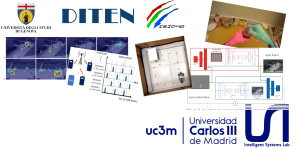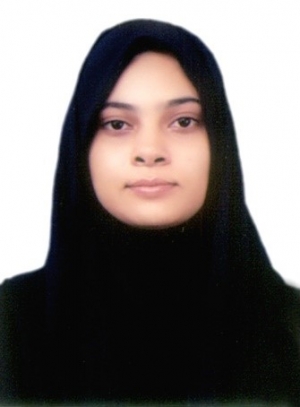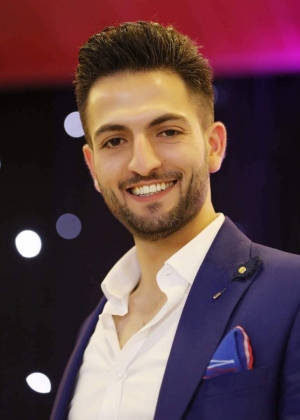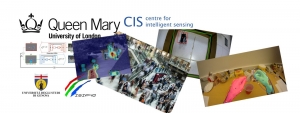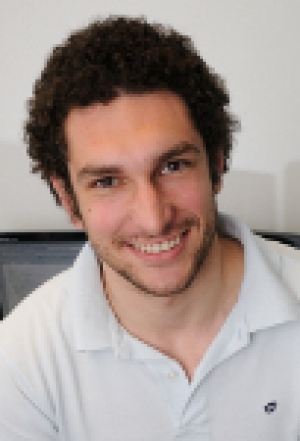Super User
Joint PhD Opportunities (38 cycle) between UNIGE and QMUL
Pre-apply here: https://forms.gle/NNebYj8ZKWWqewXg9
Two Ph.D. scholarships are available within the Joint Doctoral Programme in Interactive and Cognitive Environments (JD ICE) that is a Ph.D. programme co-organised by the Department of Electrical, Electronic, Telecommunications Engineering and Naval Architecture at University of Genoa (UNIGE) with the Centre for Intelligent Sensing at Queen Mary University of London.
General Information
Applications are invited for 2 PhD open positions
JD ICE provides Ph.D. training in the fields of multimedia signal processing, data fusion, computer vision, cognitive dynamic systems, and machine learning, and offers advanced research projects designed for ambitious students willing to become world-leading researchers. Ph.D. students will benefit from a joint-supervision model and will spend part of their Ph.D. programme in London, (UK) part in Genoa (Italy).
The ISIP40 group, active in the DITEN department in the Faculty of Engineering of the University of Genoa has focused its attention mostly on:
- Cognitive Dynamic Systems
- Multisensor Signal Processing for Surveillance
- Software and Cognitive Radio
- Bayesian Object and Situation assessment
- Interactive and Cognitive Environments
Open Positions for Ph.D. (Dottorato di Ricerca)
2 positions (3 years) starting at the beginning of November 2022; expiration date for first level applications: May 31st, 2022
Research Areas:
- Emergent and incremental collective awareness in multiple heterogeneous autonomous agents: this research theme will study novel signal processing techniques based on probabilistic graphical models and dynamic Bayesian networks for understanding the dynamics of cognitive systems and learn how to transfer this acquired knowledge;
- Data-driven self-awareness models for AI-enabled wireless communications: this research theme will study algorithms and methods for cognitive radio terminals for opportunistic spectrum usage to optimize transmission rate and external attack robustness
Applications:
Applications are invited for 2 Ph.D. open positions, starting in November 2022 with ISIP40 research group (www.isip40.it) of the Department of Electrical, Electronic, Telecommunications Engineering and Naval Architecture (DITEN), University of Genova – Genova (ITALY).
Requirements:
- Laurea Vecchio Ordinamento or Laurea Specialistica degree for Italian applicants in one of the following fields (or another related field); Master of Science or equivalent degree for applicants from abroad:
- Telecommunication Engineering
- Electronic Engineering
- Information Engineering
- IT
- Computer Science (or Laurea degree in Informatica)
- Basic knowledge in the following topics:
- Signal Processing
- Communication Systems
- Pattern Recognition
- Image/Video Processing
- English knowledge (IELTS certificate with a minimum mark of 6.5 is mandatory)
Deadline for applying:
The interested applicants please apply no later than May 31st, 2022.
How to apply?
The application is divided into two phases.
In the first phase, the interested applicants should apply here
In the second phase, applicants whose CV fits with requirements will be encouraged and advised to present an application for the official admission competition at Genoa University online application closing at the end of June 2022.
Ph.D. economic conditions
The research grant consists of about 16.5Keuro/year
Notes:
- A complete C.V. must contain at least the education degrees and the related information, experiences (both academic and non-academic), projects, list of publications, and every other thing you think can be useful
- If you have not graduated yet, provide some information about the probable graduation date.
- If you have some publications, you can also send some of the important ones together with your CV.
- You can also send any other information that you think can be useful and effective for your profile.
Joint PhD Opportunities (38 cycle) between UNIGE and UC3M
Pre-apply here: https://forms.gle/NNebYj8ZKWWqewXg9
One Ph.D. scholarship is available within the Joint Doctoral Programme in Interactive and Cognitive Environments (JD ICE) that is a PhD programme co-organised by the Department of Electrical, Electronic, Telecommunications Engineering and Naval Architecture at University of Genoa (UNIGE) with Universidad Carlos III de Madrid.
General Information
Applications are invited for 1 Ph.D. open position
JD ICE provides Ph.D. training in the fields of multimedia signal processing, data fusion, computer vision, cognitive dynamic systems, and machine learning, and offers advanced research projects designed for ambitious students willing to become world-leading researchers. Ph.D. students will benefit from a joint-supervision model and will spend part of their Ph.D. programme in Madrid (Spain) and part in Genoa (Italy), depending on the specific Ph.D. scholarship assigned.
The ISIP40 group, active in the DITEN department in the Faculty of Engineering of the University of Genoa has focused its attention mostly on:
- Cognitive Dynamic Systems
- Multisensor Signal Processing for Surveillance
- Software and Cognitive Radio
- Bayesian Object and Situation assessment
- Interactive and Cognitive Environments
Open Positions for Ph.D. (Dottorato di Ricerca)
1 position (3 years) starting at the beginning of November 2022; expiration date for first level applications: May 31st, 2022
Research Area:
- Emergent and incremental collective awareness in multiple heterogeneous autonomous agents: this research theme will study novel signal processing techniques based on probabilistic graphical models and dynamic Bayesian networks for understanding the dynamics of cognitive systems and learning how to transfer this acquired knowledge.
Applications:
Applications are invited for 1 Ph.D. open position, starting in November 2022 with ISIP40 research group (www.isip40.it) of the Department of Electrical, Electronic, Telecommunications Engineering and Naval Architecture (DITEN), University of Genova – Genova (ITALY).
Requirements:
- Laurea Vecchio Ordinamento or Laurea Specialistica degree for Italian applicants in one of the following fields (or another related field); Master of Science or equivalent degree for applicants from abroad:
- Telecommunication Engineering
- Electronic Engineering
- Information Engineering
- IT
- Computer Science (or Laurea degree in Informatica)
- Basic knowledge in the following topics:
- Signal Processing
- Communication Systems
- Pattern Recognition
- Image/Video Processing
- English knowledge (IELTS certificate with a minimum mark of 6.5 is mandatory)
Deadline for applying:
The interested applicants please apply no later than May 31st, 2022.
How to apply?
The application is divided into two phases.
In the first phase, the interested applicants should apply here
In the second phase, applicants whose CV fits with requirements will be encouraged and advised to present an application for the official admission competition at Genoa University online application closing at the end of June 2022.
Ph.D. economic conditions
The research grant consists of about 16.5Keuro/year
Notes:
- A complete C.V. must contain at least the education degrees and the related information, experiences (both academic and non-academic), projects, list of publications, and every other thing you think can be useful
- If you have not graduated yet, provide some information about the probable graduation date.
- If you have some publications, you can also send some of the important ones together with your CV.
- You can also send any other information that you think can be useful and effective for your profile.
Hafsa Iqbal
Hafsa received her BSc degree in Electrical Engineering from University of Engineering and Technology Taxila, Pakistan in 2016 and MS degree (President’s Gold Medal) in Electrical Engineering from National University of Sciences and Technology, Pakistan in 2018. She worked as a Research Assistant in Centre for Advanced Research in Engineering (CARE), Pakistan (2017) and got an experience on FPGA. Her research interests include signal processing techniques, estimation and detection methods, Internet of Things and Cognitive Radios. She is currently a PhD candidate and involved in the JD ICE programme.
Ali Krayani
Ali received his Bachelor’s and Master’s degree in Telecommunication Engineering from Politecnico di Torino (Italy) in 2014 and from University of Florence (Italy) in 2017, respectively. He worked as a Software Engineer for several companies and he is currently a JD ICE PhD candidate. His current research interests include Cognitive Radios, self-awareness, Dynamic Bayesian Networks and Machine Learning.
PhD opportunities
2 PhD studentships in machine learning for autonomous systems
Applications are invited for 2 PhD Studentships to undertake research the area of Machine Learning for Autonomous Systems. Each PhD project will focus on theory and application of visual and/or audio and/or radio sensing, with topics including data processing and machine learning, computer vision, intelligent networked sensors.
All nationalities are eligible to apply for this studentship, to be ideally started in September 2019. The studentship is for three years, and covers student fees as well as a tax-free stipend.
This PhD project is part of an interdisciplinary collaboration between the Centre for Intelligent Sensing and the Department of Electrical, Electronic, Telecommunication, and Naval Engineering at University of Genoa, Italy. The studentships will be based in the School of Electronic Engineering and Computer Science (EECS) at QMUL in London, with a period of time, normally of 12 months, spent at UNIGE.
Closing date: 28 May 2019.
Click here for more information.
Industrial Analytics: Theory and Practice of Learning from Data
The course provides advanced skills related to data analysis. It provides insights on data mining methodologies and the applications of these methodologies to knowledge extraction from data. The student will learn both the theoretical background and the practical issues for data analysis. Learning
This course aims at providing an introductory and unifying view of information extraction and model building from data, as addressed by many research fields like DataMining, Statistics, Computational Intelligence, Machine Learning, and PatternRecognition. The course will present an overview of the theoretical background of learning from data, including the most used algorithms in the field, as well as practical applications in industrial areas such as transportation, manufacturing, etc.
Syllabus/Content
- Data, information and models: induction, deduction, abduction, transduction and retroduction.
- Statistical inference: Bayesians vs. Frequentists.
- Exploratory Data Analysis.
- Problem taxonomy: Classification, Regression, Clustering, Novelty Detection, Ranking.
- Naive and linear models: Association rules, Naive Bayes, k-NN, Perceptron, LS/RLS, LASSO, L1-L2, kmeans.
- From linear to nonlinear models: Neural Networks, Trees and Forests, Kernelization and Support Vector Machines, RKLS, Spectral clustering.
- Model selection and error estimation: out-of-sample techniques (Hold Out, Cross Validation, Bootstrap).
- Advances in model selection and error estimation: Statistical Learning Theory, Union Bound, VapnikChervonenkis, Rademacher Complexities, Algorithmic Stability, PAC Bayes, Compression Bound, Differential Privacy.
- Applications in industrial areas such as transportation, manufacturing, etc.
- Implementations and computational issues.
Microcontroller-based system development in the Internet of Things
The course intends to provide students with the basic knowledge and skills for developing microcontroller-based applications. After a short introduction on edge computing and microcontrollers, the course will focus on the programming of STM32F4 boards, as an example of the Cortex M families, considering the main basic features and peripherals, such as: General Purpose Input Output (GPIO), Interrupts, Universal Synchronous/Asynchronous Receiver-Transmitter (USART/UART), Direct Memory Access (DMA), I2C, Wifi connectivity. The course will involve hands-on activities on all the addressed topics.
Agile Software Development and Design Patterns
Agile development is the ability to develop software quickly, in the face of rapidly changing requirements. By following agile principles and practices, a software development team is encouraged to evolve into a self-organizing and cross-functional group, thus improving the quality of the code, the quality of deliveries and in the end the customer satisfaction. In general, agile concepts promote adaptive planning, evolutionary development and delivery, a time-boxed iterative approach, and encourage rapid and flexible response to change. Design principles described during the course will help to keep the software flexible and maintainable, while design patterns will represent some practical tools to balance those principles for specific problems. Agile principles, patterns and practices will be described and then applied through several different case studies.
Inspiring principles for agile framework were introduced through the Agile Manifesto in 2001, focusing on individuals and interactions within a software development team, working software from the early stages of the development process, open and continuous collaboration with the customers and the ability to quickly respond to requests for changes in requirements even late in development.
There exist several processes trying to put in practice those inspiring principles, being the eXtreme Programming (XP) one of the most famous and widely adopted. XP concentrates on short development cycles, acceptance tests and test-driven development. Simple design is usually favored in contrast of needless complexity and overdesign.
Six fundamental principles of software engineering are described in details that help developers eliminate the symptoms of poor design. The Single-Responsibility Principle (SRP), the Open/Closed Principle (OCP), the Liskov Substitution Principle (LSP), the Dependency-Inversion Principle (DIP) and the Interface Segregation Principle (ISP) are the hard-won product of decades of experience in software engineering. They are not the product of a single mind but represent the integration of the thoughts and writings of a large number of software developers and researchers. Although they are presented here as principles of object-oriented design, they are really special cases of long-standing principles of software engineering.
Program:
- Agile manifesto and practices
- Overview of Extreme Programming
- Software development planning
- Test-driven development
- Refactoring
- Principles of agile design
- Single-Responsibility Principle (SRP)
- Open/Closed Principle (OCP)
- Liskov Substitution Principle (LSP)
- Dependency-Inversion Principle (DIP)
- Interface Segregation Principle (ISP)
- UML overview
- Object diagrams
- Use cases
- Sequence diagrams
- Class diagrams
- Design patterns
- Template method and Strategy
- Facade and Mediator
- Singleton and Monostate
- Null Object
- Factory
- Observer
- Proxy and Gateway
- Visitor
- State
Bibliography:
- Course notes
Further reading:
- "Manifesto for Agile Software Development", Agile Alliance, 2001, webpage: http://agilemanifesto.org/
- Robert C. Martin and Micah Martin. 2006. Agile Principles, Patterns, and Practices in C# (Robert C. Martin). Prentice Hall PTR, Upper Saddle River, NJ, USA.
- Erich Gamma, Richard Helm, Ralph Johnson, and John Vlissides. 1995. Design Patterns: Elements of Reusable Object-Oriented Software. Addison-Wesley Longman Publishing Co., Inc., Boston, MA, USA.
- Robert C. Martin. 2008. Clean Code: A Handbook of Agile Software Craftsmanship (1 ed.). Prentice Hall PTR, Upper Saddle River, NJ, USA.
- Kent Beck, extreme Programming explained: Embrace change Addison-Wesley, 2000.
Representation and learning of Dynamic Bayesian Interaction Models from Multisensor Data for Cognitive Self-Aware Ego-Things
The course aims at providing PhD Candidates knowledge on basic state of the art and advanced theories/techniques for learning from multisensory signals and data Bayesian models for jointly predicting, processing, filtering and interpreting observed interactions. Such models will be shown to enhance functionalities of embodied smart autonomous systems like cars, radios, drones, robots, buildings by providing them a self-awareness information basis. Networks of self-aware autonomous systems interacting in smart cognitive environment will be the also targeted as examples carried on in the course. From a methodological viewpoint, this module aims at identifying and describing methodologies and techniques for defining a common probabilistic framework suitable for:
- integrating contextual signals synchronously provided by multisensorial eso and endo sensors of autonomous systems by using Data Fusion paradigms and techniques;
- learning from experiences behavioural and causal self-awareness models allowing an autonomous system to describe the world through a vocabulary of normal locally stationary experiences;
- showing how each model learned from an experience can describe through probabilistic stationary rules dynamic perception, planning and actuation by means of collected external and internal observations.
Applications will be targeted of described techniques related to a couple of main case studies together with additional examples:
- self-awareness in autonomous ground and aerial vehicles and smart infrastructures (e.g. Buildings, dynamic radio spectrum)
- interactions in telecommunications scenarios like cognitive radio and internet of things.
Detailed Program:
- Data Fusion methodologies and techniques for integrating multisensorial contextual data Data Fusion models.
- JDL model and its extensions: signals, objects, situations, threats, processes and cognitive refinement.
- Coupled Dynamic Bayesian Networks.
- Bayesian multisensor state estimation and data association techniques:
- Continuous and discrete state estimation techniques: from Kalman filter to Particle Filters, Hidden Markov Models.
- PDAF and JPDAF.
- Switching models. Markov Jump and Rao Blackwellized filters.
- Learning methods from sparse and dense data
- Gaussian Processes, Generative Adversarial Networks, Variational Autoencoders.
- Unsupervised data dimensionality reduction: Self Organizing Maps, Growing Neural Gas, as semantic feature learning methods.
- Incremental learning: Dirichlet processes
- Techniques for non parametric self-awareness interaction-based predictive/generative/classification models .
- Bio-inspired neural basis of consciousness: Damasio model (core-self, protoself, autobiographical memory and autobiographical self)
- Applications and case studies:
- Cognitive radio and Internet of Things Physical anti-jammer securitySelf-awareness in autonomous ground and aerial vehicles
- Cognitive safety and physical security systems (smart patrolling in cooperative environments, preventive automotive vehicles, smart buildings, etc.)
Riccardo Mazzon
Riccardo Mazzon received a BSc degree in 2006 (3 years full-time) and a MSc degree in 2009 (2 years full-time) in Computer Engineering from the University of Padova (Italy). He developed his final MSc project as visiting student for 8 months at Heriot-Watt University (Edinburgh, UK). He subsequently spent three months working as research assistant on Stereo Real-Time Structure from Motion at LTTM, University of Padova. Since September 2009, he has been a research student at the Centre for Intelligent Sensing at Queen Mary University of London. His research interests are human behaviour and people tracking in non-overlapping camera networks.

